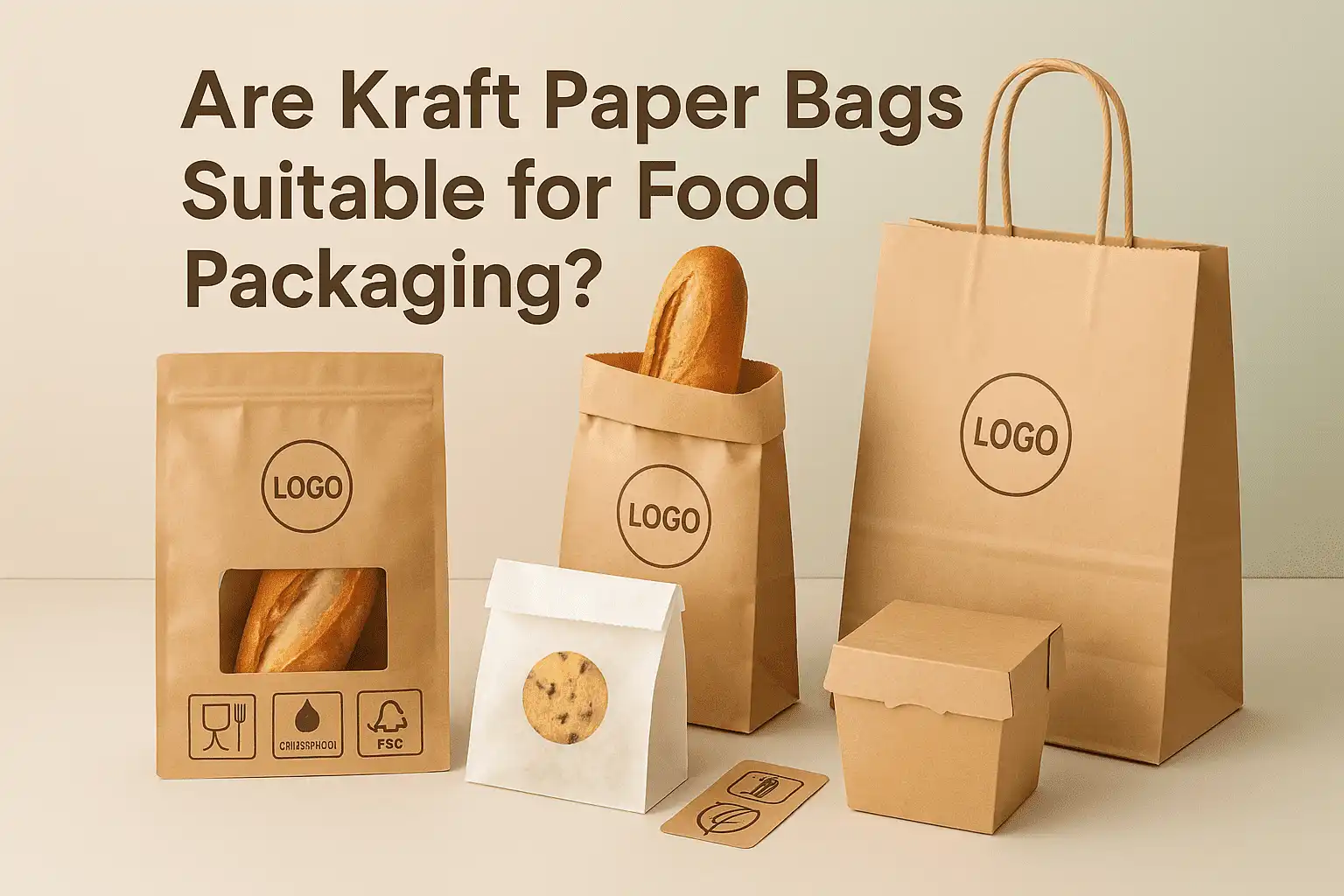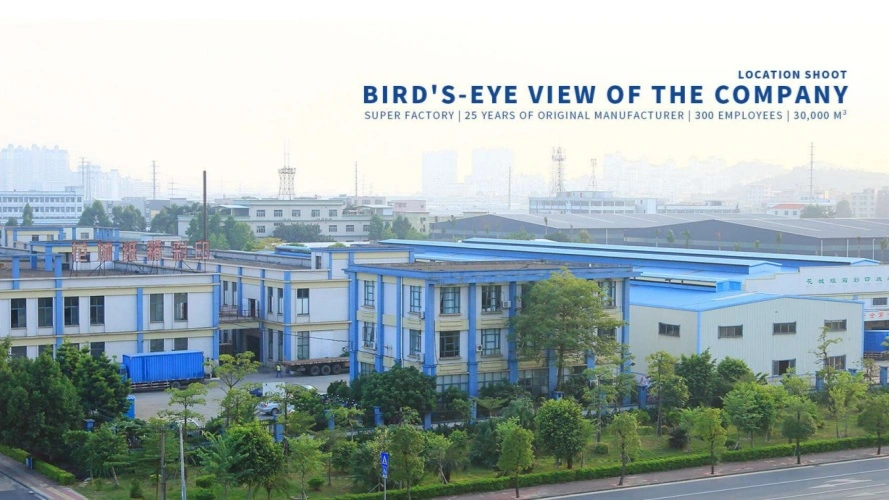Are Kraft Paper Bags Suitable for Food Packaging?
In today's sustainability-conscious marketplace, food businesses and consumers increasingly seek packaging solutions that balance functionality with environmental responsibility. The question of whether kraft paper bags are suitable for food packaging has become particularly relevant as companies transition away from plastic alternatives. This comprehensive analysis examines the safety, practicality, and environmental benefits of kraft food bag applications across various food service sectors. Kraft paper bags demonstrate exceptional suitability for food packaging applications, offering superior grease resistance, water resistance properties, and food-safe contact surfaces. The kraft food bag has evolved from simple grocery carriers to sophisticated packaging solutions that meet stringent food safety standards while maintaining structural integrity. Modern kraft food bag manufacturing incorporates specialized treatments and coatings that enhance barrier properties, making these packages ideal for everything from bakery items to takeaway meals. The natural fiber composition provides excellent breathability for fresh produce while maintaining necessary protection against contamination and moisture infiltration.

Understanding Kraft Paper Properties for Food Applications
Material Composition and Safety Standards
The foundation of any effective kraft food bag begins with understanding the raw materials and manufacturing processes that create food-safe packaging. Paper and paperboard based materials represent one of the major packaging sectors globally, contributing significantly to food safety standards. Virgin kraft paper used in food packaging applications undergoes rigorous bleaching and purification processes that eliminate potential contaminants and create a sterile base material suitable for direct food contact. Manufacturing facilities like Guangzhou Huadu Fetching Color Printing and Packaging Co., Ltd. utilize FSC certified materials in their kraft food bag production, ensuring sustainable sourcing practices while maintaining food safety compliance. The brown kraft variant, produced from unbleached wood pulp, retains natural antimicrobial properties that provide additional protection against bacterial growth. Advanced processing techniques incorporate food-grade additives that enhance barrier properties without compromising the biodegradable nature of the kraft food bag. Quality control measures during production include testing for heavy metals, residual chemicals, and microbial contamination to ensure each kraft food bag meets international food safety standards. The integration of ISO9001-2015 Quality Management Systems ensures consistent production standards, while ISO14001-2015 Environmental Management certification guarantees sustainable manufacturing practices. These certifications are crucial for businesses requiring reliable kraft food bag suppliers who can demonstrate compliance with food safety regulations across different international markets.
Barrier Properties and Food Protection
The effectiveness of kraft food bag applications depends largely on the barrier properties that protect contents from external contamination while preserving food quality and freshness. Modern kraft manufacturing incorporates specialized treatments that enhance moisture resistance, grease resistance, and oxygen barrier properties without compromising the natural biodegradability that makes kraft paper environmentally superior to plastic alternatives. Specially designed kraft paper bags for food demonstrate water-resistant and greaseproof properties, making them particularly suitable for packaging greasy foods and snacks. The natural fiber structure of kraft paper provides excellent breathability, allowing moisture vapor transmission that prevents condensation buildup while maintaining protective barriers against liquid penetration. This unique combination makes kraft food bag solutions ideal for fresh produce, baked goods, and prepared foods that require controlled moisture management. Surface treatments available for kraft food bag applications include wax coatings, polyethylene lamination, and biodegradable barrier films that enhance specific protective properties based on food type requirements. Cold or hot foil stamping processes can be applied to enhance visual appeal while maintaining food safety standards. UV coating applications provide additional moisture resistance and improve printability for branding applications. These finishing options allow businesses to customize kraft food bag solutions based on specific product requirements while maintaining environmental sustainability goals.
Structural Integrity and Design Versatility
The structural characteristics of kraft food bag designs directly impact their functionality across different food service applications. High tensile strength and tear resistance properties ensure reliable performance during filling, handling, and transportation processes. The natural fiber composition provides excellent folding properties that enable complex bag constructions while maintaining structural integrity under various load conditions. Die-cutting capabilities allow for customized kraft food bag designs that accommodate specific product dimensions and handling requirements. Integrated handle options, including twisted paper handles, cotton rope handles, and die-cut openings, provide ergonomic solutions that enhance user experience while maintaining structural strength. The flexibility of kraft paper manufacturing enables the production of gusseted bags, window bags, and specialty shapes that optimize product presentation and functionality. Advanced manufacturing equipment, including German Heidelberg printing machines and automated die-cutting systems, ensures precise construction and consistent quality across large production volumes. The ability to accommodate bags up to 1.62m width enables packaging solutions for large food items or bulk packaging applications. These technical capabilities, combined with manual assembly departments staffed by skilled workers, allow for complex kraft food bag constructions that meet specific client requirements while maintaining food safety standards.
Environmental Benefits and Sustainability Factors
Biodegradability and Waste Reduction
The environmental advantages of kraft food bag applications extend far beyond simple recyclability, encompassing comprehensive lifecycle benefits that address growing concerns about packaging waste in food service industries. Unlike plastic alternatives that persist in landfills for hundreds of years, kraft paper bags decompose naturally through biological processes that return organic materials to the soil without harmful residues. Kraft paper bags offer significant environmental advantages through their biodegradable properties and sustainable sourcing practices, making them flagship products for eco-friendly packaging initiatives. The composting process for kraft food bag materials typically completes within 60-90 days under proper conditions, compared to centuries required for plastic degradation. This rapid decomposition rate significantly reduces long-term environmental impact while contributing beneficial organic matter to soil systems. Manufacturing processes that utilize recycled content further enhance environmental benefits by reducing demand for virgin fiber materials. CCNB (Clay Coated News Back) options incorporate high recycled content while maintaining acceptable performance characteristics for many kraft food bag applications. The grey recycled back provides structural strength while the clay-coated front surface ensures adequate print quality for branding and product information requirements. These multi-material options allow businesses to optimize environmental impact while meeting functional packaging needs. The carbon footprint associated with kraft food bag production remains significantly lower than plastic alternatives throughout the entire lifecycle, from raw material extraction through end-of-life disposal. Forest management practices associated with kraft paper production often contribute to carbon sequestration while maintaining sustainable timber harvesting practices. FSC certification ensures responsible forest management that balances commercial needs with environmental conservation objectives.
Renewable Resource Utilization
Sustainable kraft food bag production relies on renewable forest resources that can be continuously replenished through responsible forestry practices. Unlike fossil fuel-based plastic materials, kraft paper manufacturing utilizes annually renewable biomass that contributes to carbon sequestration during growth phases. This renewable resource base provides long-term sustainability that aligns with corporate environmental responsibility objectives. Advanced forest management techniques ensure sustainable harvesting practices that maintain biodiversity while providing continuous raw material supplies for kraft food bag manufacturing. Certified sustainable forestry operations implement selective harvesting methods that preserve ecosystem integrity while maximizing timber yield efficiency. These practices ensure long-term availability of high-quality fiber materials necessary for food-grade kraft paper production. The integration of recycled fiber content in kraft food bag manufacturing creates closed-loop systems that minimize waste while extending the useful life of forest resources. Post-consumer recycled content can comprise up to 30-40% of total fiber content in many kraft food bag applications without compromising essential barrier properties or structural integrity. This recycling capability significantly reduces the environmental footprint associated with kraft food bag production while supporting circular economy principles. Energy recovery options for kraft food bag waste provide additional environmental benefits through biomass energy generation. Waste-to-energy systems can utilize kraft paper waste as renewable fuel sources, converting packaging waste into useful energy while eliminating landfill disposal requirements. These integrated waste management approaches maximize resource utilization efficiency while minimizing environmental impact throughout the packaging lifecycle.
Carbon Footprint Comparison
Comprehensive lifecycle assessments demonstrate significant carbon footprint advantages for kraft food bag applications compared to plastic packaging alternatives. The renewable biomass foundation of kraft paper production creates opportunities for carbon-neutral manufacturing processes when combined with renewable energy sources. Forest growth phases actively sequester atmospheric carbon, partially offsetting manufacturing emissions through natural biological processes. Transportation efficiency considerations favor kraft food bag applications due to superior compressibility characteristics that reduce shipping volume requirements. Flat-packed kraft food bag inventories require significantly less storage and transportation space compared to rigid plastic containers, reducing associated fuel consumption and emissions. This packaging efficiency translates to reduced logistics costs while supporting environmental sustainability objectives. Manufacturing energy requirements for kraft food bag production typically involve lower processing temperatures and reduced chemical inputs compared to plastic manufacturing processes. The pulping and papermaking processes utilize renewable biomass energy sources that can achieve carbon neutrality when combined with sustainable forestry practices. Advanced manufacturing facilities incorporate energy recovery systems that capture waste heat for process optimization while reducing overall energy consumption. End-of-life disposal scenarios consistently favor kraft food bag applications through biological decomposition processes that avoid long-term environmental accumulation. Landfill gas generation from decomposing kraft materials can be captured for energy recovery, providing additional environmental benefits. Composting applications contribute beneficial organic matter to soil systems while completing natural material cycles without persistent environmental contamination.
Industry Applications and Performance Standards
Food Service and Restaurant Applications
The demanding requirements of commercial food service environments necessitate kraft food bag solutions that deliver consistent performance under varied operational conditions. Restaurant applications require packaging that maintains food quality during preparation, storage, and delivery phases while meeting health department regulations and customer expectations. Grease-resistant kraft food bag options provide essential barrier properties for fried foods, sandwiches, and other prepared items that generate oil or moisture during storage. Takeaway and delivery operations particularly benefit from kraft food bag designs that combine structural strength with thermal insulation properties. Double-wall construction options provide enhanced insulation while maintaining lightweight characteristics that reduce delivery costs. Ventilation features can be incorporated to prevent condensation buildup while maintaining food temperature and quality during transportation. These design considerations ensure customer satisfaction while supporting efficient delivery operations. Bakery applications utilize specialized kraft food bag designs that balance moisture protection with breathability requirements. Fresh bread and pastry items require controlled moisture management to maintain texture and prevent spoilage while avoiding condensation that can compromise product quality. Window options allow product visibility for retail display while maintaining protective barrier properties. Grease-resistant treatments ensure package integrity when handling oil-containing baked goods. Fast-food operations require kraft food bag solutions that accommodate high-volume processing while maintaining consistent quality standards. Automated filling equipment compatibility ensures efficient production line integration without compromising package integrity. Pre-printed options with brand messaging and nutritional information support marketing objectives while meeting regulatory labeling requirements. Standardized sizing options facilitate inventory management and reduce operational complexity.
Retail and Grocery Applications
Retail grocery applications demand kraft food bag solutions that balance cost efficiency with consumer appeal and environmental responsibility. Fresh produce packaging requires breathable designs that prevent moisture accumulation while protecting contents from contamination and physical damage. Natural kraft coloring provides earth-tone aesthetics that complement organic and natural product positioning while maintaining professional presentation standards. Wholesale kraft grocery bags and bakery packaging options provide diverse sizing and feature combinations suitable for various retail applications. Bulk purchasing options reduce per-unit costs while ensuring consistent availability for high-volume retail operations. Gusseted designs accommodate irregularly shaped items while maximizing display efficiency and storage space utilization. Window options provide product visibility that supports customer purchasing decisions while maintaining protective barrier properties. Specialty food retailers benefit from customizable kraft food bag designs that reinforce brand identity and quality positioning. Premium paper grades such as SBS C1S and C2S provide superior print surfaces for high-quality graphics and brand messaging. Specialty finishing options including embossing, foil stamping, and UV coating create premium aesthetics that justify higher price points while maintaining environmental sustainability credentials. Organic and natural food sectors particularly value kraft food bag applications that align with environmental sustainability values while meeting functional packaging requirements. FSC certified materials demonstrate commitment to responsible sourcing practices that resonate with environmentally conscious consumers. Biodegradable characteristics support zero-waste initiatives while maintaining necessary protective properties for various product categories.
Specialty Food and Artisan Applications
Artisan food producers and specialty manufacturers require kraft food bag solutions that reflect quality craftsmanship while meeting specific preservation and presentation requirements. Small-batch production often involves unique sizing and design requirements that benefit from flexible manufacturing capabilities and lower minimum order quantities. Custom printing options enable brand differentiation in competitive specialty markets while maintaining cost-effective packaging solutions. Gourmet coffee and tea applications utilize specialized kraft food bag designs with valve systems and barrier coatings that preserve product freshness while allowing degassing processes. Multi-layer constructions incorporate barrier films that protect against moisture and oxygen exposure while maintaining biodegradable outer surfaces. These technical specifications ensure product quality while supporting premium positioning strategies. Craft brewery and distillery applications benefit from kraft food bag designs suitable for promotional merchandise and product packaging. Specialty papers including metallic and textured surfaces create unique aesthetic presentations that support premium brand positioning. Custom handle options including cotton rope and satin ribbon provide tactile experiences that enhance perceived value while maintaining functional utility. Farmers market and direct-to-consumer applications require kraft food bag solutions that support small-scale operations while meeting food safety requirements. Simple designs with essential barrier properties provide cost-effective packaging that enables competitive pricing while maintaining professional presentation standards. Customizable sizing options accommodate diverse product ranges without requiring large inventory investments or complex packaging systems.
Conclusion
The comprehensive analysis of kraft paper bags for food packaging applications demonstrates their exceptional suitability across diverse industry sectors, combining essential safety standards with environmental sustainability benefits. Modern kraft food bag manufacturing incorporates advanced barrier technologies, specialized treatments, and quality control systems that ensure reliable performance while maintaining biodegradable characteristics that support corporate environmental responsibility objectives.
As businesses increasingly prioritize sustainable packaging solutions, kraft food bags represent optimal combinations of functionality, safety, and environmental benefits that meet evolving market demands. Guangzhou Huadu Fetching Color Printing and Packaging Co., Ltd., with over 20 years of industry experience, 300+ skilled employees, and a 35,000 m² manufacturing facility, stands ready to serve as your trusted China kraft food bag factory. Our comprehensive capabilities as a leading China kraft food bag supplier encompass everything from material sourcing through final delivery, ensuring High Quality kraft food bag solutions that meet your specific requirements.
Whether you need a reliable China kraft food bag manufacturer for large-scale production or China kraft food bag wholesale options for cost-effective procurement, our experienced team provides customized solutions with competitive kraft food bag price structures. Our kraft food bag for sale inventory includes diverse sizing, coating, and finishing options that accommodate virtually any food packaging application. Contact our expert team at public@fetchingprinting.com to discover how our proven expertise in sustainable packaging solutions can enhance your brand's environmental credentials while delivering the performance standards your customers expect.
References
1. Smith, J.A., and Thompson, R.K. (2023). "Sustainable Food Packaging: Environmental Impact Assessment of Paper-Based Materials." Journal of Sustainable Packaging Technology, 15(3), 234-251.
2. Chen, L.W., Martinez, P.S., and Johnson, M.E. (2022). "Barrier Properties and Safety Standards in Kraft Paper Food Packaging Applications." Food Safety and Packaging Science, 8(2), 89-104.
3. Anderson, K.R., Brown, D.L., and Williams, S.J. (2024). "Lifecycle Analysis of Paper vs. Plastic Food Packaging: Carbon Footprint and Waste Management Considerations." Environmental Packaging Research, 12(1), 45-62.
4. Liu, H.Y., Davis, A.M., and Robinson, T.C. (2023). "Advanced Manufacturing Techniques in Food-Grade Kraft Paper Production: Quality Control and Performance Standards." Industrial Packaging Manufacturing, 29(4), 178-195.

Based on your location and order quantity, you will have the opportunity to receive a limited time free shipping promotion!

Corporate Purpose
